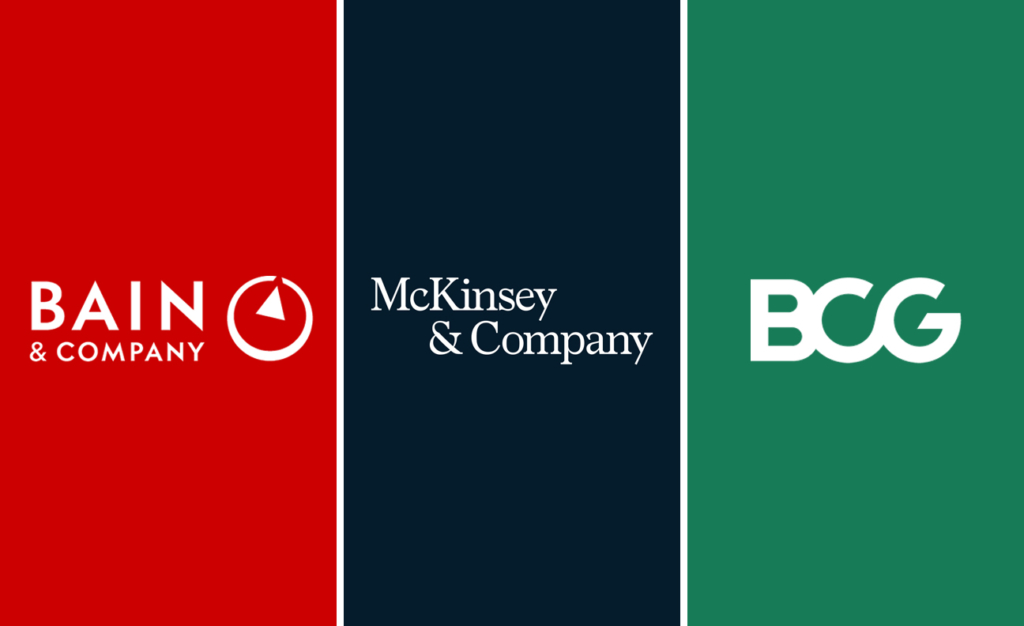
PAY SURGES OVER TIME
Such differences also come with a few caveats. For one, Management Consulted notes, full performance bonus is reserved for the very best consultants with average performers making (at best) half of the maximum amount. Unlike base, this bonus is something that consultants can’t assume will be part of their compensation. In addition, bonuses are taxed – mightily –meaning they can’t be taken at face value. At the same time, Management Consulted warns prospective hires to factor location into their pay. For example, higher pay is often commensurate with higher costs of living. As a result, take home can be enhanced by choosing a site with a more reasonable cost of living than New York City, Silicon Valley, London, or Tokyo.
Beyond starting pay, Management Consulted also supplies a “Consultant Salary Growth Trajectory,” which illustrates how consultant pay changes over time. Undergrads, for example, can command a $90,000 base on average – a $10,000 increase over 2019 survey results. At the same time, the ceiling for performance bonus rose by $1,000 to $13,500, while signing bonus held steady at $5,000. For newly-minted MBAs, base pay jumped from $150,000 to $165,000 in the past year alone. Those increases extended to signing bonus ($25K to $30K) and performance bonus ($44K to $45K ceiling).

Bain photo
As base pay and performance bonus rise, undergrads and MBAs can expect their compensation to rise exponentially. According to Management Consulted, MBAs can expect increases of 10%-20% in these pay areas each year. These numbers grow more pronounced with each step in a consultant’s career – particularly at the MBA level. Within 2-3 years of graduation, when MBAs move into project leader and manager roles, they can expect a $220K-$220K base accompanied by a $90K-$130K bonus. At the 4-5 year mark, when many MBAs become senior project leaders and associate principals, they are snagging $250K-$320K bases and $120K-$220K bonuses. As junior partners, bases vault to $350K-$420K accompanied by a $350-$550K performance bonuses. After a decade, MBAs settle into the million dollar a year range as senior partners and directors, with $450K-$550K bases and $500K or more bonuses.
GAINING AN EDGE DURING THE INTERNSHIP
Obviously, the path to principal and partner grows increasingly narrow over time. That’s because most consulting firms follow an ‘up-or-out’ philosophy designed to weed out the above-average to make room for the excellent. Don’t shed any tears for those who decide to move on. According to Management Consulted, consultants can expect a pay increase of 12%-20% when they take the proverbial exit – a choice that often leads to a better work-life balance…not to mention greater decision-making authority.
While pay increases were the norm for MBA hires in 2019, internship pay remained flat. Bain, BCG, and McKinsey each doled out $32,000 for 10-week internships in the United States – no different than past. However, some firms included creative wrinkles to attract talent. Boutique firms like NERA Economic Consulting, Simon & Kucher, and ZS Associates used performance and signing bonuses as inducements for interns. Accenture Strategy supplemented its $30,000 intern pay with up to $50,000 tuition reimbursement (after taxes) for returning interns. In contrast, KPMG applies an hourly wage of $66 – which rises to $99 an hour with overtime.

McKinseyites at the 2019 SXSW booth
Not surprisingly, undergrads are pegged with a much lower value during internships. MBB intern pay is half of their MBA brethren. Bain and McKinsey interns, for example, are paid $15,000 for their services, no different than the year before. That said, BCG has carved out an advantage by increasing their undergrad intern pay from $15,000 to $18,000. PwC, Accenture, and Deloitte apply an hourly model, paying at $39, $35, and $32 an hour respectively (with Accenture overtime coming to $48 an hour…not counting a $2,500 signing bonus). Among hourly pay, Strategy& may offer the best proposition: $41 an hour, which translates to $16,400 over 10 weeks (excluding overtime) – which is comparable to the MBB. The same can’t be said for a boutique firm like Mercer, whose $27 an hour wage comes out to $10,800.
WAITING FOR DIGITAL TO TAKE OFF
Regardless of pay differences, consulting will always attract talented and ambitious candidates. Namaan Mian, who heads operations at Management Consulted, believes the field still holds several advantages over Big Tech and finance. “Besides the fact that consulting offers a competitive initial base salary, it also offers faster promotion cycles – meaning a quicker escalation in pay (15-20% per year at the top firms),” he tells P&Q. “In addition, consulting allows for broader industry exposure and a clearer path to business leadership.”
At the same time, the industry is evolving. Notably, top consulting firms have engaged in a whirl of acquisitions in recent years. In 2019, McKinsey acquired Westney Consulting to build its capital projects and infrastructure practice, while also staking millions in AI and analytics startups. Two years ago, Bain & Company purchased FRWD, a Minneapolis digital agency, to enhance its design, data collection, and digital capabilities. The digital space is one area where the MBB has devoted increasing resources Despite this, Mian doesn’t expect the MBB to flood the space and put out the boutique players that have traditionally dominated it.

Namaan Mian
“We don’t anticipate MBB digital practices crowding out other firms – the demand is just too high. To date, MBB has focused more on digital strategy rather than digital implementation. This has made it tougher to take market share from more established digital players.”
RED FLAGS AHEAD
Looking ahead, what can MBA students expect from the consulting industry? According to Management Consulted data, top consulting firms are expected to grow revenues by 10% in 2020. That doesn’t mean the industry won’t experience turbulence. In its report, Management Consulted points to soft demand in the human capital and digital practices, which has resulted in hiring freezes and layoffs in various practices.
“A tipping point is coming – with increased competition over the last decade, firms haven’t been able to substantially raise the price of an engagement,” Mian observes. “They’ve focused on increasing utilization, but there’s only so much you can increase utilization until you’re capped. We anticipate a correction – specifically to post-MBA salaries – in the not too distant future. The one factor that could change this outlook is the emergence of AI and advanced analytics replacing the work of one analyst on a team.”
Big picture, 2020 is shaping up as a positive year…just not for the reasons you might expect, Mian adds “The global economy is strong, yet fears of a recession are taking hold. “Both of these factors are good news for consulting firms, and we forecast another record year in consulting firm revenues. In the short term, this means that pay will continue to rise, although at a similar clip we saw in 2019.”
Page 3: Differences in undergrad and MBA pay between 2018 and 2020 at top-tier consulting firms.
Page 4: A look at how undergrad and MBA pay has changed over the past five years at top-tier consulting firms.
DON’T MISS: TOP 50 CONSULTING FIRMS TO WORK FOR IN 2020
MEET BAIN & COMPANY’S MBA CLASS OF 2018
MEET McKINSEY’S MBA CLASS OF 2018
Editor’s Note: The pay data cited is based on earnings supplied by Management Consulted on January 15th. Data may be modified throughout the year as new salary information is received.
To see in-depth pay data for undergraduate and MBA pay for over 50 consulting firms, click here.










